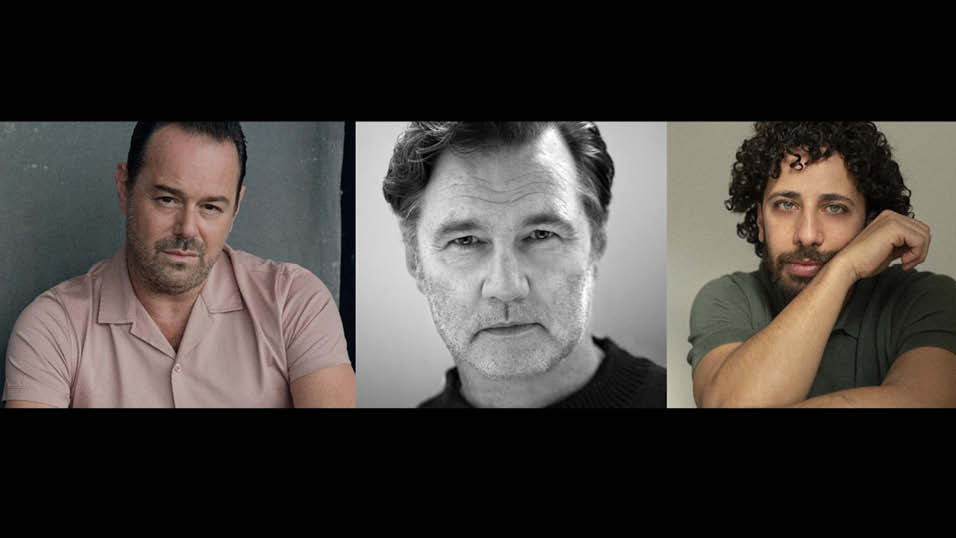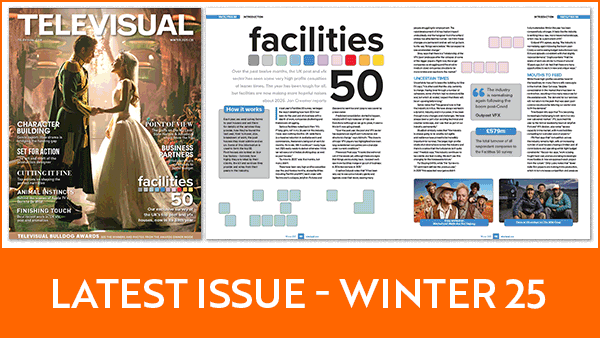CEO of Harry King TV, Nicholas Sercombe, on why AI can never replicate the comic originality that comes from lived experience and collaboration.
I have been working in comedy for so long that I have just been asked to be a weather forecaster, the highest accolade on the stand-up circuit. I am beside myself with joy and delusion! But is it possible that one day a robot could be given the same award? Let’s weigh up the odds…
Like meteorologists, all comedians are highly intelligent, whether they be stand-up performers or writers (yours truly excluded). Is a global bank of Artificial Intelligence computers just as bright the humans or just a dashboard of Christmas tree lights? Let’s take one of the funniest and most cleverest jokes in the British television archive “A Visit To The Swedish Chemist” (from the sketch show, Not The Nine ‘O’ Clock News, about 40 years ago):
A man walks into the shop. He sees two shopkeepers behind a desk.
Man: I would like to buy some deodorant.
Shopkeeper: Ball or aerosol?
Man: No, for my armpits.
I took one well-known AI website and asked it to mimic this sketch. In response, it acknowledged the existence of “A Visit To The Swedish Chemist” and then I received: “A Visit To The British Ironmonger,” a script that comprises 14 dialogue exchanges between Shopkeeper and Customer with cruder innuendo gags than a night out with Julian Clary (stiff guttering and siphoning fish tanks – kinky!). The AI robot failed; in fact, t is a total and utter car crash!
Does a robot have the intelligence to understand the nuances of this gag? Maybe the answer is Yes because the gag has worked already. But could it have created the gag? Definitely not. Creating comedy relies upon the writer’s knowledge of language and cultural differences with an inkling of how it will be delivered by the actor. And then there is structure, where brevity is crucial.
Another historical example is Ian La Frenais’ gag from Lovejoy, of about 30 years ago. The set-up is Charlie Gimbert, long standing rival of Lovejoy, says: “Do you know what, Lovejoy, I like having you around. Since my wife died, I have had nobody to hate.”
Could a robot write this pathos? It might succeed in copying the shape via an archive of Lovejoy scripts, but it could not have created that gag. And would it dare to take the risk of digging into a personal scar or push against social boundaries? Nope!
Great comedy is not usually generated by a methodical process; it is created by wit and wisdom. (Last weekend a friend’s son revealed his secret ambition to be an astronaut, and he was off to Seoul to do the training. I told him immediately that all astronauts are diminutive and as he is 6 feet 4 inches this was not a Korea path). Any comedian would workshop that gag, test it in front of audiences and see how well it was received, but the basic gag was created by the human brain, a lightning synapse drawn from memory banks and converted into humour. Just like that…I don’t think a robot could do the same.
Comedy is also personal. It comes from the writer’s view upon the world. Les Dawson’s mother-in-law jokes were not just lines; they were born from his persona, his experience of close family and his knowledge of the audiences who trusted him. A robot could be fed every gag written but it could not truly share human perspectives and lifetime experiences.
My conclusion is that in the current climate humans should stick to writing and robots to acting, where there is a rich heritage of synthetic stars, like HAL, from 2001 A Space Odyssey. Holly from Red Dwarf; Environmental Control Robot from Lost In Space; and, finally, the finest comedian of them all, Bender, the cynical bon viveur in Futurama. (Moses holds up a stone tablet of a single commandment: “God Needs Booze.” “Make mine a double!” shouts Bender O.S.). Comedy must be created by humans… for human consumption.
I cannot foresee AI creating or writing comedy and taking over from humans, not now or even next month. But we shouldn’t write them off because when I give you this year’s nominations for Best Comedy at this National Television Awards supplied by us humans:
- Michael McIntyre 25th Year Stand-Up Special – a one-off Light Entertainment show
- Brassic – a 7-year old comedy drama
- Mrs Brown’s Boys – a 14-year old sitcom
- Gavin & Stacey – a 20-year old sitcom and WINNER
I ask you, seriously, whether British comedy is a dying genre? Shirley not?
Jon Creamer
Share this story














